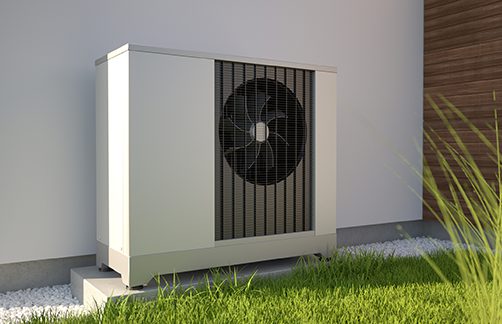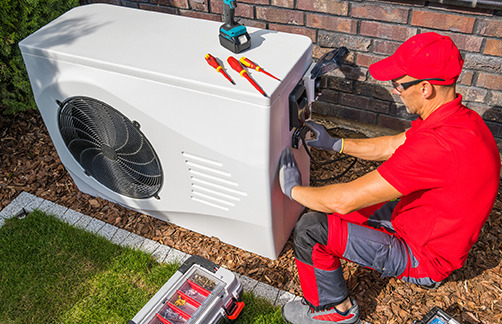Meet net zero by changing heating - BRE Group
How to meet net zero by changing the way homes are heated
According to BRE research, sixty two percent of British home owners wouldn’t feel at all confident explaining how a heat pump works and in Autumn 2022 a UK government survey found that 50% of people know little, or hardly anything, about the need to change the way homes are heated to meet net zero. And from our work on the English Housing Survey in 2020 and 2021, we know that 91% of English homes were heated by gas or oil; less than 1% of homes had a heat pump.
These figures show the mountain we need to climb in order to move away from our current, high carbon, gas and oil heating systems to heat pumps and other clean heating options, such as district heating. This is a central net zero challenge: 23% of UK carbon emissions come from heating our 25 million homes and 1.7 million public and business buildings. (Heat and Buildings Strategy, UK Government, 2021)
BRE was founded in the 1920s to undertake the research, analysis and testing needed to improve the UK’s buildings. In January this year BRE published its report, Decarbonising Heat in Britain’s Buildings. From the second half of the 2020s into the 2030s, the biggest change we’re going to see in buildings is the move away from high carbon heating: BRE’s report gives our experts’ views on how that change needs to happen.

The switch to low carbon heating will involve nearly every household in the country. The good news is that homeowners are ready to consider lower carbon heating. Three-quarters (76%) of owner occupiers we polled in October 2022 said they would consider installing a heat pump if running costs were the same as a gas boiler. Half of households would install it if the purchase cost were the same as a new gas boiler; a quarter of households would consider installing it even if purchase costs were higher.
Getting to the point where low carbon heating can deliver guaranteed low running costs and purchase costs are readily affordable is still a challenge. The UK government has said it is going to rebalance the taxes and levies, so that relative to gas electricity can be more affordable. This will be key to reducing heat pump and other electric heating systems’ running costs.
Helping homeowners insulate their homes will also be vital. Well insulated homes need less energy for heat, and can use smaller (and cheaper to buy) heating systems. A national home retrofit advice and support programme that can help everyone make their home more energy efficient needs to be at the centre of heat decarbonisation through the 2020s.
To deliver affordable warmth, the new heating systems need to be right for different families in different types of homes. They need to be accurately designed, sized and commissioned (set up for operation), probably to a higher level than is often achieved in a standard gas boiler installation.
And handover – ensuring that homeowners know how to effectively use their new system – needs to be considered a key part of the installation process. To get all those stages in the process right, wider field testing of different technology options will be needed, as well as new systems of training and regulation for a new installation industry.
Helping homeowners insulate their homes will also be vital. Well insulated homes need less energy for heat, and can use smaller (and cheaper to buy) heating systems. A national home retrofit advice and support programme that can help everyone make their home more energy efficient needs to be at the centre of heat decarbonisation through the 2020s.

Some types of homeowner will need more support and encouragement, and help with energy efficiency, to install low carbon heating. To give just one example, there’s a large group of owner occupiers in very low energy efficiency homes. Many of these are older people – the average (median) owner occupier is now 58 years old and homeowners in their 60s and 70s are more likely to own homes that are expensive to make energy efficient. (English Housing Survey, 2019 to 2020: home ownership, UK Government, pub. 2021, Annex Table 4.11)
These homeowners will need targeted help to install insulation. There need to be financing offers that work for people at a later stage of life, accompanied by a straightforward installation process, which support them to change their boiler for a new, low carbon heating system. Both the government and the heating industry are currently some way from putting in place the support and offers that would make this sort of targeted assistance possible.
These considerations – rebalancing of energy costs, installer skills, consumer advice and engagement – are just a few of the pieces the UK needs to have in place for householders to adopt low carbon heating. There are several other considerations which we discuss in the new BRE report. In short, the householder needs to be at the centre of planning for heat decarbonisation.
Although the government is putting policies in place, It’s hard to see how all this can be delivered without a truly comprehensive national retrofit strategy signed up to by government and industry, that covers both insulation and clean heating, for all UK buildings. BRE stands ready to help.
Sources
- English Housing Survey Energy Report, 2020-21 UK Government, July 2022
- BEIS Public Attitudes Tracker: Heat and Energy in the Home Summer 2022, UK Government, 2022
- Heat and Buildings Strategy, UK Government, 2021
- English Housing Survey, 2019 to 2020: home ownership, UK Government, pub. 2021, Annex Table 4.11
